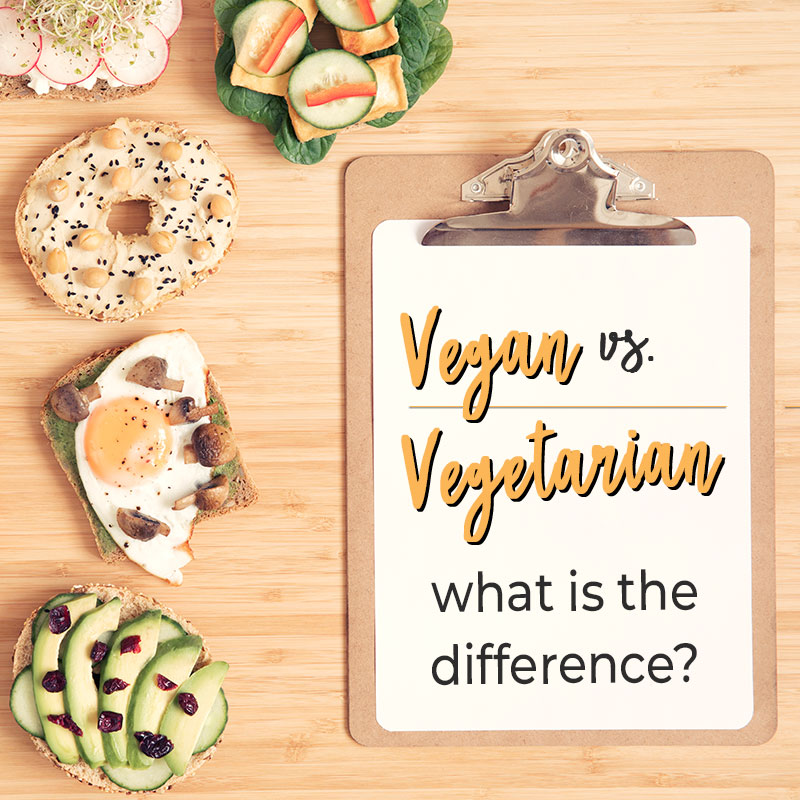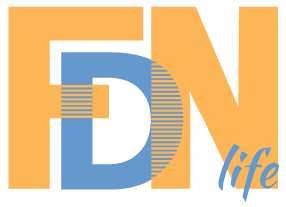
FDN LIFE >
VEGAN VS. VEGETARIAN – What IS The Difference Between Vegan & Vegetarian Diets?
- ISSUE NO: 11 > JULY-DEC '22
Vegan vs. Vegetarian - What is the difference? what is the difference between vegan vegetarian? vegan food vegetarian food
FDN FOOD >
Ever wondered what the difference between a vegan and vegetarian is?
There are some misconceptions about the two diets. This is Mainly because every individual adapts either Veganism or Vegetarianism to their own needs.
But in its true form, vegetarianism was always meant to exclude the consumption of any and all meat products.
Somewhere between the First and Third centuries, vegetarianism was first recorded in ancient India. This ‘true vegetarianism’, as it was known, is similar to veganism as we know it today.
‘True vegetarianism’ was first seen amid the Jain, Hindu and Buddhist religions. For the Buddhists and Jains, their rule of non-violence against animals was the origin. While for Hindus the concept of vegetarianism is scripted in the Vedas, the Ramayana and Mahabharata, which are sacred texts of the Hindu religion.
From the 1900s onwards, vegetarianism took on many forms, adapted as per the needs of modern humans. As a result there are today various forms.

Vegan Vs. Vegetarian - The Primary Differences
| Vegan | Vegetarian | |
|---|---|---|
| Definition |
A vegan chooses to live a life that is sustainable and not harmful, and eats only food that is in its raw, natural and organic state. Ultimately, veganism is not only a form of eating (diet), but also a way of living (lifestyle), that is in sync with nature and as natural and organic as possible. When it comes to dietary choices, Vegans choose food that are 100% plant-based, such as raw, organic fruits and vegetables, nuts, and legumes. (Food that is as true to its natural form as possible.) Vegans eat food that is completely free of animal or dairy products. Food is consumed mostly without alteration, in its original state, and is not cooked or fried in oil. Though it might sound strict, it is in fact not when one is serious about health and healthy living. A vegan diet is one of the healthiest diets in the world, with a plethora of recipes and techniques developed over the years to create interesting and unique dishes. |
A vegetarian is someone who also focuses on the eating of healthy and natural food, but can incorporate dairy products into their diet such as milk, cheese, and some other forms of dairy. Some also eat eggs, although it is frowned upon by ‘true vegetarians.’ It’s important to note that vegetarians follow a diet where the main rule is: Consumption of the food item does NOT cause harm to the animal. It’s important to note that the western world has adapted vegetarianism to their own needs, but in its original form, a vegetarian diet since its earliest inception in ancient India does NOT include animal products. Due to modern conventions, some individuals started incorporating some aspects of animal produce into their diet, and as such, various forms of vegetarianism developed. Alternative forms of vegetarianism such as Pescetarianism, Lacto, Ovo, Lacto-Ovo, and so on, exist. Ultimately, vegetarianism is also not just a diet choice, but a lifestyle choice. A choice to respect the lives of other beings, such as animals, and to cause no harm to others. |
| The Different Types |
- Raw Vegan Diet - Whole-food Vegan Diet - Gluten Free Vegan Diet - Raw Till 4 Vegan Diet - Fruitarian Vegan Diet - Junk-Food Vegan Diet - Paleo Vegan Diet - Freegan Diet |
- Ovo is a plant based diet that includes eggs but not dairy. - Lacto-Ovo is a plant based diet that includes both eggs and dairy. - Lacto is a plant based diet that includes dairy but not eggs. - Living foods diet is a diet of living foods, some of which are heated to conserve their health benefits. - Fruitarian is a diet of fruits and plants that vine such as tomatoes. - Raw Foodist is a plant based diet whereby the foods consumed are not cooked or heated. |
| Primary Exclusions |
A vegan diet excludes all and any forms of meat. Vegans also do not consume any form of animal byproducts, such as dairy, and eggs. Some vegans do not consume honey as bees are harmed in the retrieval process. Products that contain animal byproducts, such as skin care infused with honey or pillows with feathers, are also excluded. |
Each type of vegetarian diet has its own set of exclusions. The main point of a vegetarian diet, though, is that no animal flesh is consumed. However, unlike vegans, vegetarian diets allow for animal byproducts. Meaning that some types of vegetarians will often consume dairy products such as honey and eggs. Hindu vegetarians do not touch eggs or any forms of meat, (including fish which is an animal product), but will consume milk, paneer, and other forms of dairy products. |
| Allowed Food Types |
True veganism consists of a diet of plant based products in their rawest and most natural form. This has however in some cases been adapted to suit the needs of each individual. Products such as ‘vegan cheese’ and ‘vegan bacon’ have been created for people who choose vegan, but miss some of the non-vegan foods. |
Vegetarianism also consists of mainly raw plant based products, but as seen above it differs from diet to diet. Vegetarians often cook their food, while vegans prefer not to. True vegetarianism is quite like veganism, as it is a diet of plant based foods that have been kept as natural and organic as possible. Vegetarians can eat some forms of diary, while vegans do not. |
| Foods NOT Allowed |
Vegans avoid any foods that contain even a small amount of non-plant based ingredients. Honey is one such product. As well as gelatin that is not made with a plant base. There are even a few vitamin D3 sources, as well as ingredients such as whey and many others, that they avoid. |
Vegetarians avoid all meat and byproducts of which the method of gathering the product results in harm to the animal. Every product is inspected before purchase, especially canned foods. In India, one can shop for vegetarian food more easily since vegetarian products are indicated with a green dot, while a brown dot would indicate non-vegetarian. Some other countries have adapted similar methodologies. |
| Level of Restriction |
If you thought being a vegan would only affect what you eat, you would be wrong. Most vegans also avoid everyday products that contain animal byproducts, synthetic substances, colourants, and any form of inorganic additions that is unhealthy and inorganic. This includes leather products, clothes made with real wool or silk, products that contain beeswax, soaps that contain animal fats, cosmetics that contain any animal byproducts or that are tested on animals. The reason veganism is considered strict, is because they do not cook their food. They only sometimes steam their food, but mostly choose to eat their food raw. |
Though there are vegetarians that see their choice only as a diet to follow in hopes of being healthier, but ‘true vegetarianism’ is much more than this.
‘True vegetarianism’ is a way of life based on a choice to not harm animals. Those who follow ‘true vegetarianism’ will choose not to use everyday products that contain animal byproducts. In the same way vegans do. Vegetarianism is considered less restrictive because they do prepare and cook their food, in many different ways. |
| Why this dietary choice? |
Most who decide to become a vegan do so because they are conscious about their impact on other beings, including animals, and their impact on the environment and sustainability.
Many also embrace the many health benefits a vegan diet brings, and better weight management. |
Many vegetarians were born into the practice, and as such it is a way of life and a daily practice for them. They practice ‘true vegetarianism’ as a part of their religion, not merely for health.
Though, in western culture it has become common to choose a vegetarian diet for the health benefits. |
| Is Alcohol Allowed? |
No, vegans do NOT consider alcohol as healthy or organic. When the focus is on healthy and healthy living, it is evident that alcohol consumption has more negative effects on health than positive. |
Each vegetarian has their own set of principles, but if one researches the vegetarian diet the way it was originally designed, it does NOT include alcohol. It’s only in some modern Western vegetarian adaptations that some vegetarians consume alcohol. In a true vegetarian diet, such as the Hindu vegetarian diet, alcohol consumption is frowned upon and not considered vegetarian. |
| Food Preparation |
Food is never cooked or fried, but prepared in its rawest form. That does not mean there is a lack of dishes, on the contrary, a large selection of dishes can be prepared by using raw and organic ingredients. br> Blending methodologies are often used to create soups, drinks, smoothies, etc. |
Food can be cooked and fried, with a selection of cooking oils as per the preference of the user. |
What is not Vegetarianism / Veganism
There are four other diets, often classified as vegetarian, but they are not truly vegetarian:
- The Pescatarian diet is a plant based diet that allows the consumption of fish and seafood.
- The Pesco-pollo diet is a plant based diet that allows the consumption of fish, seafood and poultry.
- Pollotarian is a plant based diet that allows the consumption of poultry.
- Flexitarian is a mostly plant based diet that allows the consumption of any meats and animal products in limited amounts
These diets are western adaptations, warped to suit personal needs. Many want to live healthier, but out of habit crave meat and fall back onto these diets claiming to be vegetarian. This is a choice and is not accepted by True Vegetarianism.
The primary difference between a vegan and vegetarian diet can be found in the way food is prepared, since both follow a non-destructive perspective on animal life.
Furthermore, although multiple forms of vegetarianism and veganism exist today, (adapted to suit the needs of a growing modern population), since its inception and earliest form, these diets are meant to exclude any form of meat. (Fish, poultry, and chicken, crocodile, ostrich, or any other are also meat, and are not eaten.)
The consumption of meat is considered not true vegetarianism and veganism, and is frowned upon by true followers of these lifestyles.
Although you might adapt your vegetarian or vegan diet to suit your needs, it would be lucrative to research the true and ancient ways to understand what a true vegetarian or true vegan lifestyle was meant to be.
RESOURCES & CITATIONS
- Eske, Jamie. “What is the difference between veganism and vegetarianism”, Medical News Today, June 14, 2019, https://www.medicalnewstoday.com/articles/325478#health-benefits
- Petre, Alina. “Vegan vs. Vegetarian: What’s the difference?”, Healthline, Updated August 23, 2021, https://www.healthline.com/nutrition/vegan-vs-vegetarian
- Blackwood, Michelle. “What is the Difference Between Vegan and Vegetarian”, Healthiersteps, March 1, 2022, https://healthiersteps.com/whats-the-difference-between-vegan-and-vegetarian/
- Unknown. “History of vegetarianism”, Wikipedia, May 10, 2022. https://en.wikipedia.org/wiki/History_of_vegetarianism#Indian_subcontinent
- Unknown. “The Physical Advantages of Being Vegetarian”, CelestialHealing, n/a. https://www.celestialhealing.net/physicalveg.htm
- Unknown. “The correlation between meats, diseases and obesity”, CelestialHealing, n/a. https://www.celestialhealing.net/physicalveg2.htm
- Unknown. “How humans are not physically created to eat meat”, CelestialHealing, n/a. https://www.celestialhealing.net/physicalveg3.htm
Vegan vs. Vegetarian - What is the difference? what is the difference between vegan vegetarian? vegan food vegetarian food
FDN LIFE ARTICLE >
SHARE
CONTENT
- Editor's Notes >
- eResidency 101 > PART 1 - A History
- eResidency 101 > PART 2 - PROs & CONs of Top eResidency Programs Compared
- Vegan vs. Vegetarian > What's the difference?
- LIESBET & MARK > A Life Well Travelled
-
DIGITAL NOMAD FAMILIES >
Top 5 Winter Destinations for Digital Nomad Families Travelling Together - ERESIDENCY 101 > PART 3 - ESTONIA - eResidency in Estonia for Location Independent Businesses + Visa Requirements
Upcoming Articles . . . .
- AND MANY MORE! Check-in weekly for new article releases and the latest news. Or subscribe to our newsletter to be notified.
SUBSCRIBE TO
FDN LIFE NEWSLETTER!
Join our mailing list to receive the latest news, information, and special offers.




